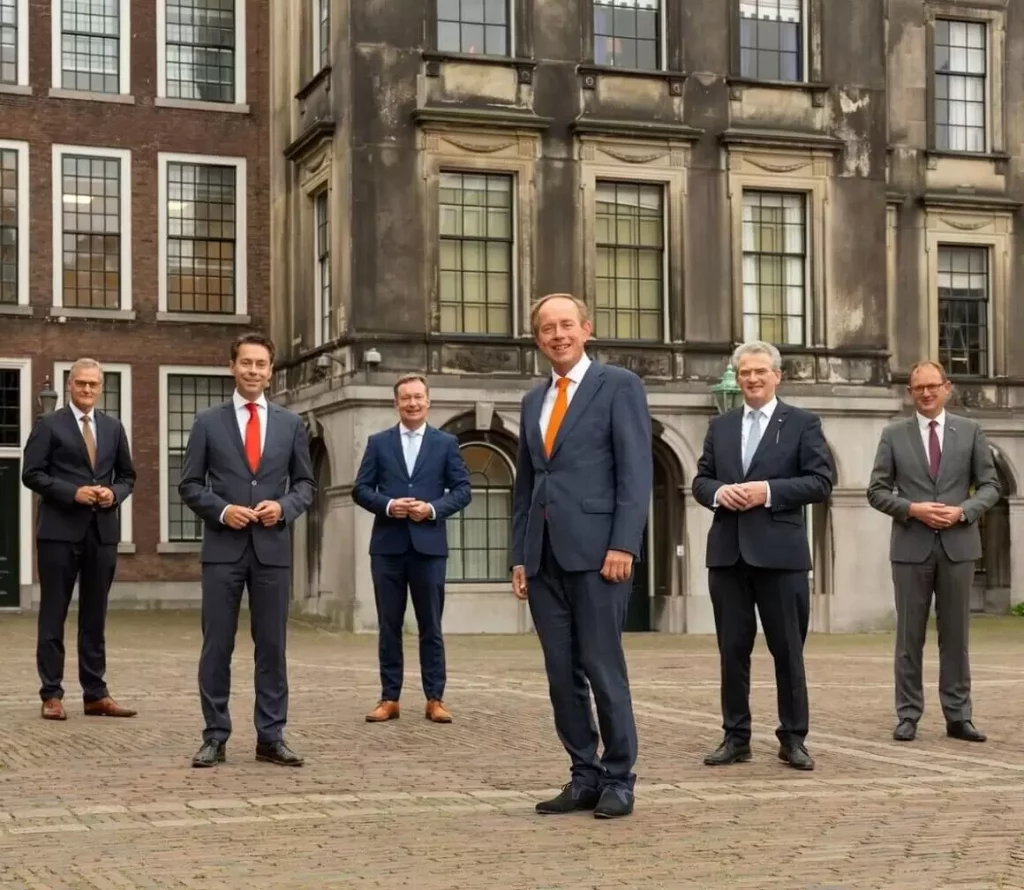The SGP is over 100 years old and the oldest party in the Netherlands ever. Yet they remain recognizable at their core: the SGP anchor point, the Bible, remains. Yet within the SGP there is a lot of attention for mobility.
In the Nieuwspoort press center, Chris Stoffer, the SGP's party leader, explained his party's election manifesto. Under the slogan 'Keeping your word', the party focuses on three spearheads: a heart for vulnerable lives, focus on family and a stand for safety. But it doesn't stop there. The SGP places a detailed focus on a theme that often remains underexposed in political rhetoric: mobility and the challenges surrounding infrastructure.
The SGP sees mobility as the cement of society. It ensures that people can go to school, work and shops, and it makes informal care and social interaction possible. Yet good and affordable mobility cannot be taken for granted. It can become too expensive or simply not available, especially in rural areas. Traffic jams are another obstacle, not only annoying, but also costly. According to the SGP, traffic jams cost society around four billion euros every year, while traffic accidents cause damage of even twenty-seven billion euros.
In contrast to the usual economic consideration when dividing the budget for infrastructure, the SGP advocates a broader perspective. The party proposes to transform the Mobility Fund into an Accessibility Fund that takes various aspects into account, such as road safety and regional accessibility outside the Randstad.
In the field of road safety, the SGP has several proposals, including tackling safety bottlenecks in the national road network and providing tax incentives for driver assistance systems. Emphasis is also placed on the seriousness of alcohol and drug use in traffic, with proposals for a tougher approach and more checks.

The party is also looking at: intelligent solutions for traffic problems. For example, by investing in smart traffic lights and by introducing pay-per-use, which can reduce traffic congestion by 15 to 30%. There are also calls for more flexibility in working hours and lesson times to relieve the burden during rush hours. The focus is not just on the car; the SGP program also underlines the importance of better and affordable public transport options, especially in areas outside the Randstad.
A topic that is particularly relevant in the current era of climate change is the vulnerability of the Dutch infrastructure to extreme weather conditions. The SGP places a clear emphasis on this, with plans for better asset management and multi-year plans for the maintenance of roads, bridges and locks.

SGP outlines a wide range of initiatives, from rail innovation to aviation restrictions, to make the Dutch transport system future-proof.
At a time when sustainability, efficiency and accessibility are central, the SGP presents a series of proposals to take the Dutch transport system to a higher level. The party proposes, among other things, to increase the voltage on the overhead lines of trains to 3 kV, which would lead to faster acceleration and higher capacity on the rail network. This could contribute to a reduction in congestion and more efficient use of the railway.
Decentralization of regional train services is also high on the agenda, in order to better connect to other regional public transport. This proposal appears to be in line with the desire for more customization in transport, which could potentially allow travelers to make a more seamless transition between different forms of transport.
The SGP wants to modernize the tender procedures for public transport concessions. They advocate introducing Mobility as a Service (MaaS), a digital service that integrates different forms of transport. The idea is to make transport services, such as trains and buses, more accessible to mobility service providers. This requires standardization so that travelers do not need a separate app for each carrier.
Another important point is the need to make public transport more accessible for people with disabilities. The party wants stricter rules and more participation for interest groups in the tender process. The SGP also aims to remove bureaucratic obstacles for local initiatives that focus on the transport of the elderly and less mobile people. This is an issue that is also receiving increasing attention from society, given the aging population and the increased emphasis on inclusivity.
In the field of aviation, the SGP is critical of current growth trends, especially around Schiphol. They advocate a reduction in the number of flights, especially cheap holiday flights that add little economic value but are environmentally harmful. The concept of an air passenger tax is also mentioned, especially for destinations in Europe that are easily accessible by train.
The SGP is also interested in investigating daring projects, such as the possible relocation of runways from Schiphol to the sea. This will look not only at the transport component, but also at the integration of tidal power stations and contributions to coastal defense, which could imply a more holistic approach to infrastructure planning.
With regard to road freight transport, the SGP advocates more flexibility for truck drivers and the sharing of data between transport and logistics companies to make transport more efficient and safer.
The SGP's proposals cover a broad spectrum, from railways to aviation and from regular public transport to specialized services. They approach the challenges in the transport sector from different angles, with both practical and strategic proposals that, if implemented, could significantly change the face of Dutch transport infrastructure.

As befits the SGP, respect for life is central, also in traffic. Every year, more than twenty thousand people are seriously injured and more than seven hundred traffic deaths, numbers that the party believes can and should be reduced.
Chris Stoffer
Stoffer was director of Eastern Netherlands at Rijkswaterstaat. A subject that he personally has a lot of interest in is road safety. Chris Stoffer was born in Harderwijk on September 19, 1974 and lives in Elspeet. He has been active in the House of Representatives for a total of 5 years. The SGP remains close to its principled Christian message. The value they attach to Dutch identity also remains recognisable. The party continues to stand up for a great Dutch good: freedom of conscience. They have been doing this for over 100 years and say they will continue to do so.



